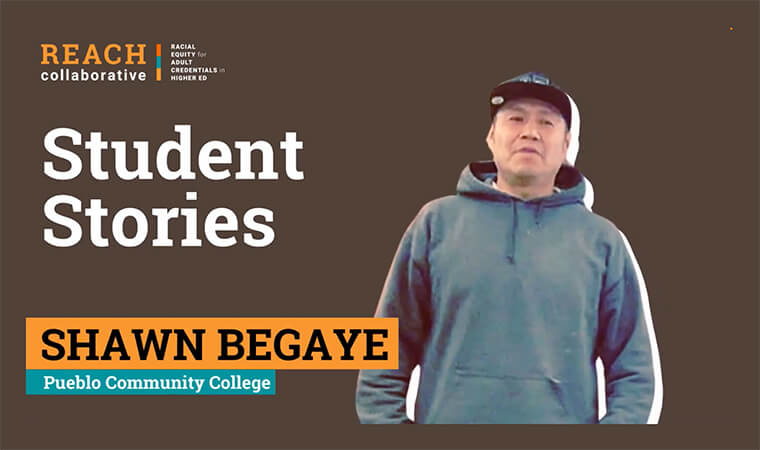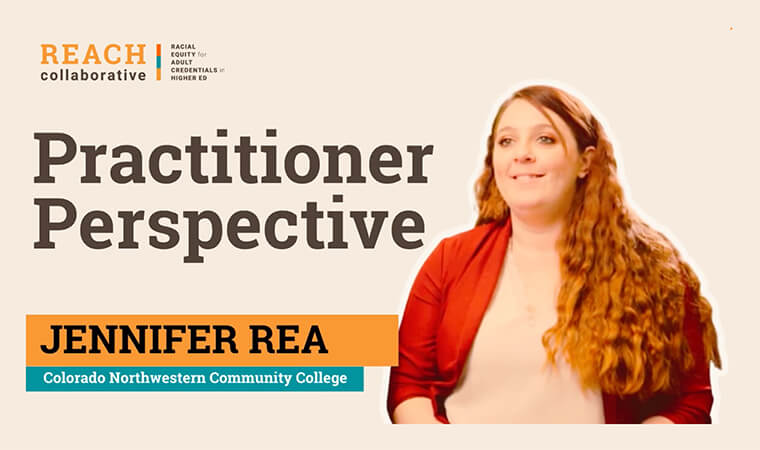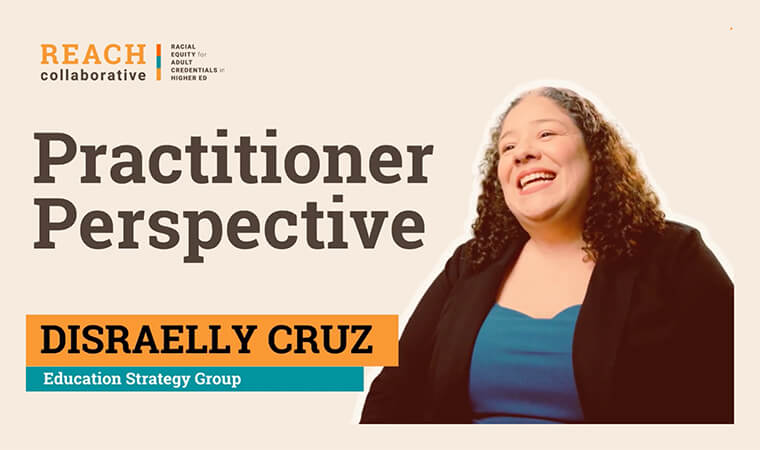Shawn Begaye
Pueblo Community College

The traditional college-going experience was not designed with adult students of color in mind. Inequitable policies and practices, ranging from enrollment and placement processes to access to financial aid and student services, unintentionally lead these students to believe they don’t belong and are not welcome in higher education. Culturally sustaining practices are designed to embrace students’ lived experiences and contribute to their sense of belonging in college. By replacing one-size-fits-all approaches with practices that acknowledge and account for students’ unique backgrounds, identities, or cultures, colleges can help ensure their ultimate success in their chosen pathways.
Hear from adult learners of color and the leaders and staff who are working to create welcoming spaces for them. Hear more practitioner perspectives »
Pueblo Community College

Colorado Northwestern Community College

Education Strategy Group

A real understanding of the needs of adult students of color and an ability to support those needs requires direct insights and input. Watch this recorded presentation from Jason Keist with the University of Pittsburgh on best practices for capturing and incorporating racially minoritized learners’ perspectives.
Meeting adult students of color where they are now means learning where they come from and how it informs their goals and motivations. Watch a recorded presentation from Jason Keist with the University of Pittsburgh on why it’s important to tap into these students’ community cultural wealth and the best ways to do it.
Join our email list to stay updated on the latest resources, best practices, and impact stories from REACH states and colleges.

Design seamless academic pathways.
Credential to Degree PathwaysProvide proactive academic and life supports.
Bundled and Sequenced Supports